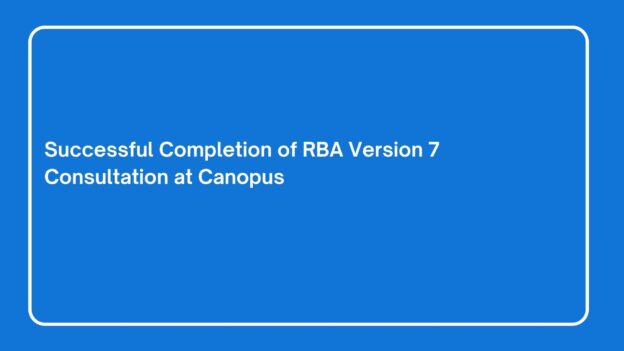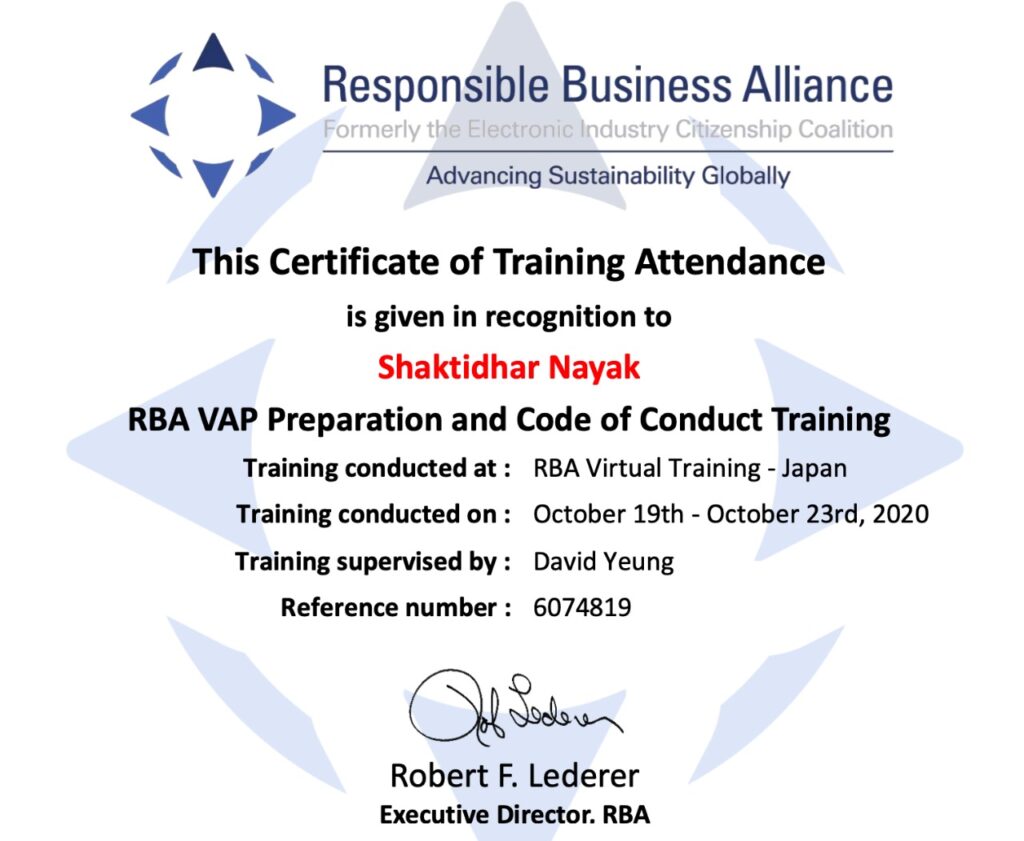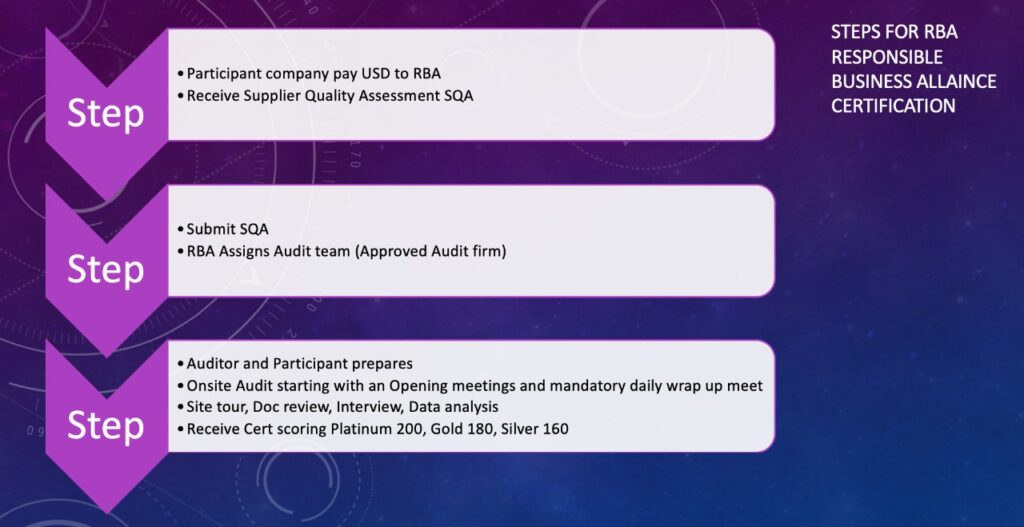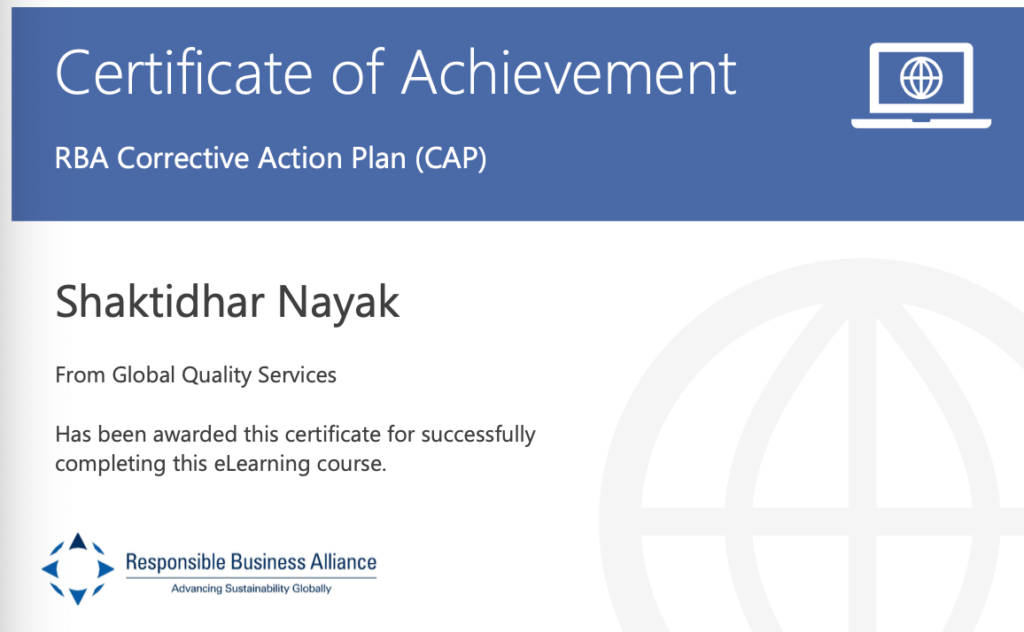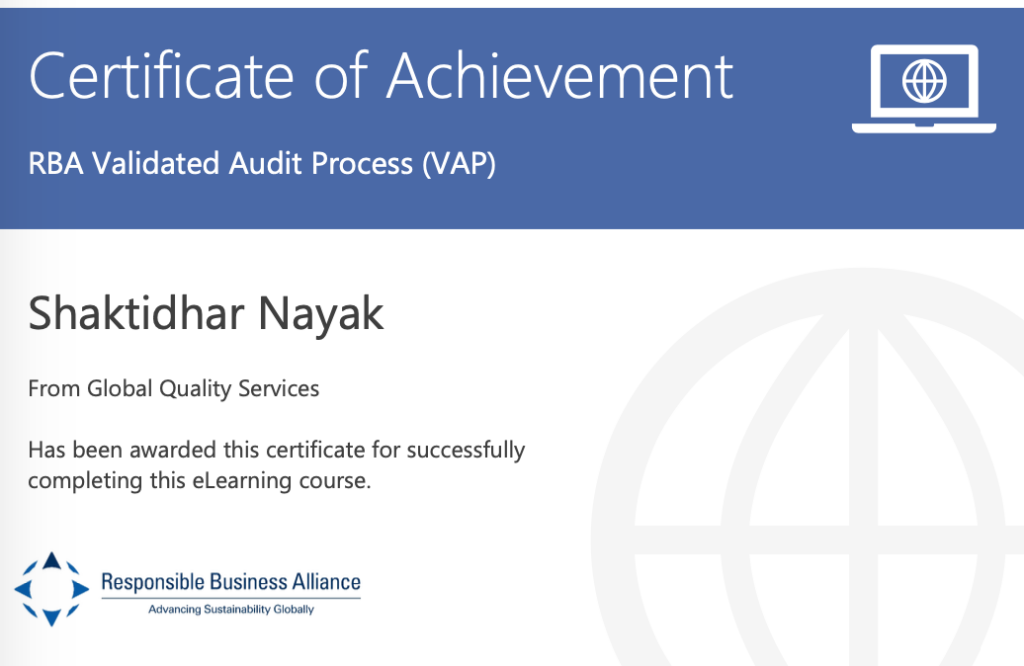This article outlines the successful completion of the RBA Version 7 consultation in Canopus. The purpose of this consultation was to implement the Responsible Business Alliance’s (RBA) seventh version of the Code of Conduct, ensuring ethical and sustainable practices across the organization. The report highlights the key steps taken, challenges faced, and the positive outcomes achieved during the consultation process.
Introduction:
The RBA Version 7 consultation aimed to align Canopus ‘s practices with the latest standards and requirements outlined by the Responsible Business Alliance. This initiative was undertaken to enhance the organization’s commitment to responsible and sustainable business practices.
Consultation Process:
2.1. Awareness and Planning:
To kickstart the process, a cross-functional team was formed, comprising representatives from various departments. This team was responsible for raising awareness about the importance of RBA Version 7 and planning the consultation process.
2.2. Gap Analysis:
A comprehensive gap analysis was conducted to identify the existing practices that needed improvement to meet RBA Version 7 standards. The analysis encompassed policies, procedures, supply chain management, labor practices, health and safety, environmental impact, and other relevant areas.
2.3. Stakeholder Engagement:
Engaging stakeholders was crucial for a successful consultation. Stakeholders, including employees, suppliers, customers, and community representatives, were consulted to gather their perspectives, expectations, and concerns related to RBA Version 7 implementation.
2.4. Policy and Procedure Review:
Existing policies and procedures were reviewed to ensure compliance with RBA Version 7. Any necessary revisions were made to align them with the latest standards. This involved updating codes of conduct, supplier contracts, and internal guidelines.
2.5. Training and Education:
To create awareness and build capacity, training and educational sessions were conducted across the organization. These sessions focused on RBA Version 7 requirements, ethical practices, and the benefits of sustainable business operations. Emphasis was placed on fostering a culture of responsibility and accountability.
2.6. Supply Chain Assessment:
The organization’s supply chain underwent a thorough assessment to identify potential risks and areas requiring improvement. Supplier audits were conducted, evaluating compliance with RBA Version 7 standards. Non-compliant suppliers were given support to rectify their practices, fostering a collaborative approach to improvement.
Challenges Faced:
During the consultation process, several challenges were encountered, including resistance to change, lack of awareness about responsible business practices, and the need for substantial resource allocation. Overcoming these challenges required effective communication, employee engagement, and strong leadership commitment.
Positive Outcomes:
4.1. Improved Ethical Practices:
The successful completion of the RBA Version 7 consultation resulted in the implementation of robust ethical practices throughout the organization. This included fair labor standards, responsible sourcing, and transparent supplier relationships.
4.2. Enhanced Sustainability:
Through the consultation process, Organization CANOPUS identified opportunities for increased sustainability. This led to the adoption of environmentally friendly practices, waste reduction measures, and resource conservation efforts.
4.3. Stakeholder Trust:
Engaging stakeholders throughout the consultation process fostered trust and transparency. Customers, suppliers, and the community at large gained confidence in Canopus ‘s commitment to responsible business practices, resulting in improved relationships.
4.4. Competitive Advantage:
By successfully implementing RBA Version 7, Canopus gained a competitive advantage in the market. Ethical and sustainable practices not only attracted environmentally conscious customers but also positioned the organization as a preferred partner for socially responsible suppliers.
The successful completion of the RBA Version 7 consultation in Canopus demonstrates the organization’s commitment to responsible and sustainable business practices. Through diligent planning, stakeholder engagement, and overcoming challenges, the organization has achieved positive outcomes, including improved ethical practices, enhanced sustainability, stakeholder trust, and a competitive advantage. The successful implementation of RBA Version 7 sets the foundation for a socially responsible and sustainable future for Canopus.
For support in RBA Responsible business alliance in Singapore; Manila, Makati, Laguna Philippines, Jakarta Indonesia, Thailand; Penang Malaysia contact us on [email protected] or [email protected]

